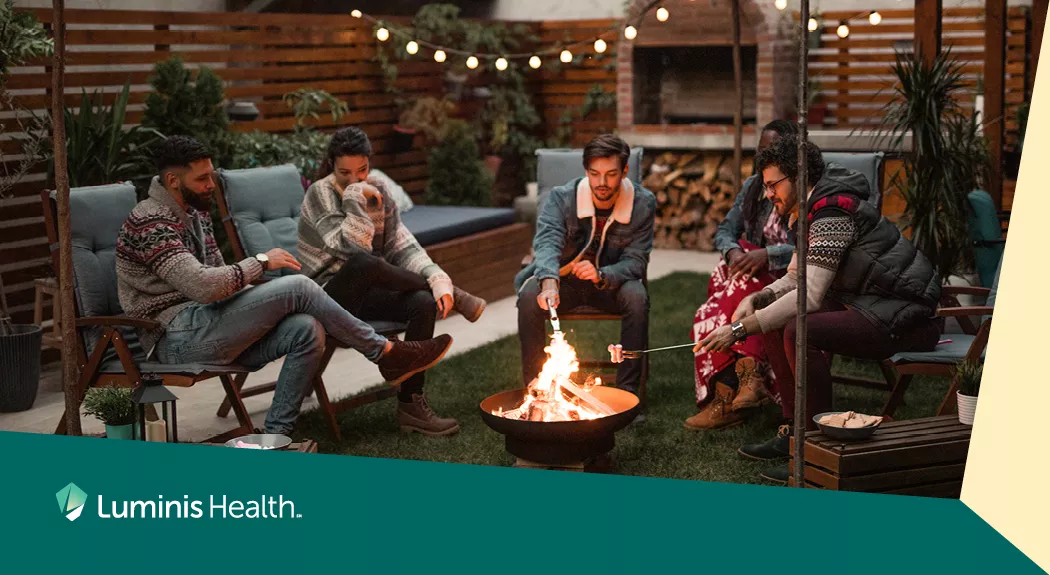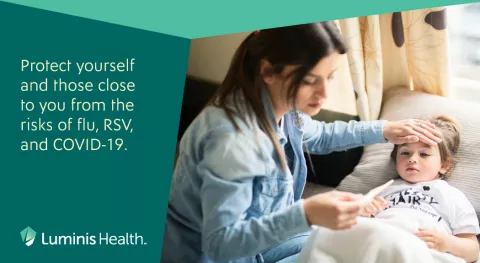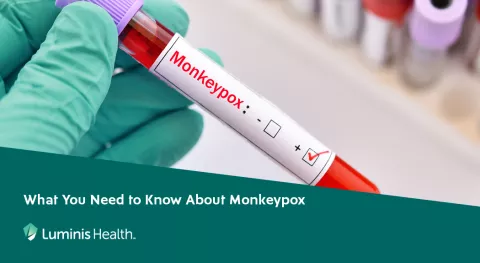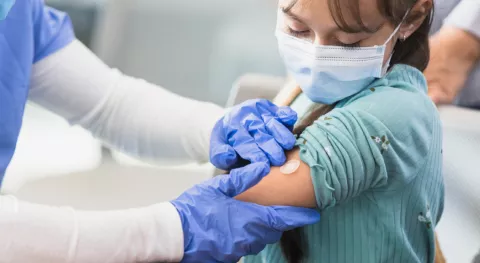
A Respectful Way to Find Out Vaccination Status
As the holidays approach and the weather turns cold, activities seem to shift from wide open outdoor spaces to close quarters in our homes. And while gathering around tables with your loved ones and arranging playdates for your kiddos is essential for your family’s mental health, these activities also pose a greater risk of spreading viruses. So, how do you protect your friends and family from COVID-19 during the holiday season?
It’s important that your guests understand your view on vaccination. One way is with an honest and respectful conversation about vaccination status. COVID-19 vaccines are safe and effective at slowing the spread of coronavirus and greatly reduce the risk of severe illness, hospitalization and death. Now, with booster shots approved for all adults age 18 and older, and COVID-19 vaccines making their way to pediatrician offices for kids ages 5-12, more people than ever are eligible for the shots.
However, asking someone if they’re vaccinated isn’t always easy, especially at a time when heightened emotions and political debates seem to play into the conversation. Here are a few tips on getting a healthy and productive discussion started.
Know Your Rights
Some individuals have pointed to the Health Insurance Portability and Accountability Act (HIPPA) as a reason they don’t have to share vaccination status. That’s actually not true. HIPPA does protect an individual’s health information from being shared by health institutions or providers without their consent. But it doesn’t make it wrong – or illegal – to ask someone if they’ve been vaccinated. Just keep in mind though, that just because you ask, doesn’t mean they have to answer you.
Approach The Topic With Respect
Because vaccines are such a hot topic, it’s important to frame the question carefully. Letting your loved ones know upfront you understand (and respect) their point of view, even if it’s different than your own, will help put everyone at ease from the start.
As you dive into the discussion, we suggest using “I” statements instead of “you” statements. For example:
Try:
“Our family includes immunocompromised individuals, so we do our best to protect them. One way we do that is by asking about vaccination status of the people we’ll be around. This helps us make choices that are best for our family. Have you and your family been vaccinated?”
-OR-
“We want to keep our kids in school as much as possible this year. One way we’re doing that is by reducing our exposure to COVID-19, however we can. I have to ask, has your family been vaccinated?”
Remember, respect is key in this scenario, so even if the conversation ends differently than you’d hoped, it’s crucial you convey that you understand each family has to make the decision that’s right for them.
Know What To Do If Others Aren’t Vaccinated
What you do next largely depends on your comfort level and if anyone in your family is at higher risk of serious illness from COVID-19. But here are a few options to consider:
- Ask everyone to wear a mask. If the activity will take place indoors or you’re hosting a party at your own home, ask that everyone wear a mask.
- Ask people if they feel sick to stay home. Anyone with cold, flu or COVID-19 symptoms should stay away from others to help reduce the risk of making others sick
- Move activities outside. You may need to bundle up against the cold air, but outdoor events pose lower risk of spreading COVID-19 and other illness, like the seasonal flu.
- Opt out of the activity. Remember, if you don’t feel safe or comfortable spending time indoors with people who haven’t been vaccinated, you can politely and respectfully decline the invitation.
- Want to add another layer of protection to your gathering? Ask people who haven’t been vaccinated to show a negative COVID-19 test. Keep in mind, these tests aren’t always accurate at identifying active infections in asymptotic individuals, but it can help give you and your guests some peace of mind.
Find Ways to Stay Included and Involved
It’s been tough on everyone over the past two years. What we’ve learned is that there are many ways to stay in touch during milestone celebrations without increasing your family’s COVID-19 risk.
If you do choose not to attend parties or get-togethers, here are a few ways you can still spread that holiday cheer:
- Ask the host to dial you in virtually for a portion of the event
- Bake a goody bag of cookies and candy to mail or drop off at someone’s house
- Send a sweet card letting loved ones know you are thinking of them
- Start a “You’ve Been Elfed” tradition where you leave a bucket of sweet treats and little presents on neighbor’s porches
We’re Here For You
We understand that vaccinations bring a wide range of responses and beliefs. However, we do hope that as time goes by, we’ll all see the great benefit of choosing to become vaccinated. After all, it’s how we can keep ourselves healthy and well, and our loved ones safe.
If you have any questions, we have answers. And should you decide you’re ready to schedule your vaccination, visit one of our community vaccine clinics.



